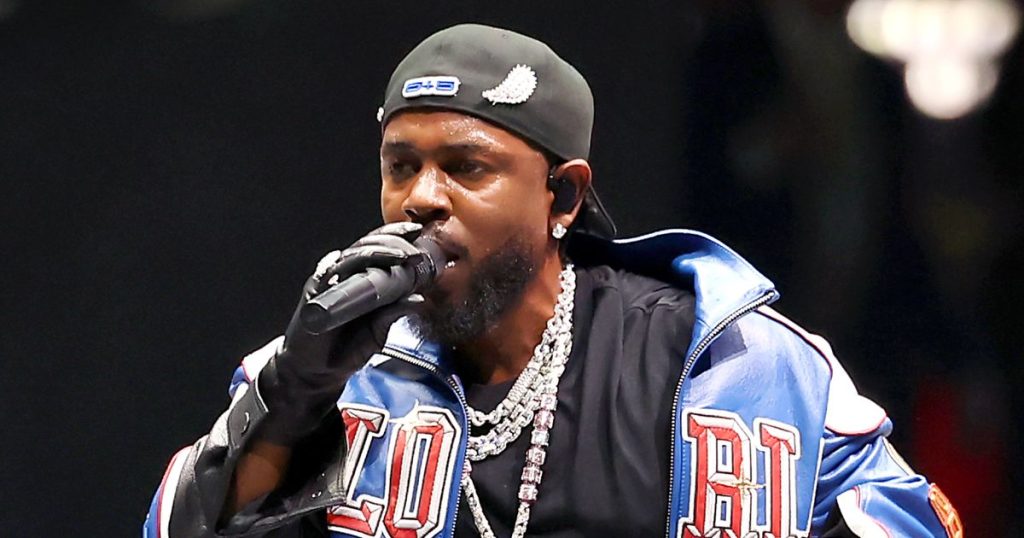Kendrick Lamar’s highly anticipated performance at Super Bowl LVIII (58) Halftime Show on Sunday night was a groundbreaking moment that brought immense joy and excitement to fans and music lovers worldwide. However, the historic event also sparked backlash from some critics, who labeled it a “DEI halftime show”––a term that has increasingly been weaponized by conservatives to critique diversity, equity, and inclusion efforts. Lamar, a Black Grammy-winning artist and Pulitzer Prize recipient from Compton, California, made history as the first solo hip-hop artist to headline the prestigious event. His performance, which celebrated Black culture and featured prominent Black figures like singer SZA, tennis legend Serena Williams, and actor Samuel L. Jackson, was met with admiration from many but also drew derogatory comments from some, who dismissed his music as “garbage” and mocked his performance for being too focused on Black culture.
The backlash against Lamar’s performance highlights a broader issue in the cultural and political landscape: the weaponization of the term “DEI” as a dog whistle to marginalize andCodeAtlebrize Black people and other underrepresented groups. Critics on social media platforms like X (formerly Twitter) argued that the term “DEI” is often used as coded language for anything involving Black people, effectively reducing the celebration of Black excellence to a political talking point. For instance, one user pointed out that conservatives’ complaints about the halftime show’s supposed lack of diversity were hypocritical, given their simultaneous critique of DEI efforts. “Lmaoo now you want DEI?” one user joked, highlighting the inconsistency in their arguments. Others noted that even if the halftime show had included performers of all races, some critics would still label it as “DEI,” revealing their true motives: to damn any representation of Black culture or success as an overreach of diversity initiatives.
The attacks on Lamar’s performance are part of a larger trend of conservative pushback against DEI practices, which have been a focal point of political rhetoric in recent years. President Donald Trump, who has long been critical of diversity efforts, recently launched an executive crackdown on DEI initiatives, framing them as threats to meritocracy. During his inaugural address, Trump called for a “colorblind and merit-based” society, implying that efforts to promote diversity and inclusion undermine fairness and achievement. However, DEI advocates argue that these practices are not about lowering standards or handing out undeserved opportunities but about recognizing and valuing talent that has historically been overlooked or undervalued. As Parker McMullen Bushman, CEO of Ecoinclusive Strategies, told HuffPost, DEI is about “recognizing talent that has historically been ignored or undervalued.”
Lamar’s performance and the backlash it received also underscore the deep-seated resentment some people feel toward seeing Black excellence celebrated on such a grand scale. Despite Lamar’s undeniable qualifications—he has dominated the music industry with hits like “Not Like Us,” which topped the Billboard Hot 100 chart, and recently won five Grammy Awards—some critics questioned his worthiness to headline the Super Bowl. These critiques echo the broader narrative that Black people’s achievements are somehow less deserving or are the result of affirmative action rather than hard work and talent. During his Grammys acceptance speech earlier this month, Lamar emphasized the transformative power of hip-hop and rap, declaring, “We are the culture, it’s going to always stay here and live forever… I just hope you respect the art form.” His words resonated deeply with fans and underscored the enduring impact of Black culture on global music and art.
Danielle Bell, an associate professor at Northwestern University, praised Lamar’s Super Bowl performance for its unwavering commitment to celebrating Black culture. “His performance was consistent with his brand of artistry, which masterfully centers culture while making a statement,” Bell told HuffPost. “It’s always done in a way that is so rich yet so nuanced that it deeply resonates with Black people in this country.” For Bell, the criticism directed at Lamar’s performance reflects a deeper discomfort with the unapologetic celebration of Blackness. “It absolutely did celebrate and focus on hip-hop/rap and Black culture,” she said. “So the question then becomes, ‘Why are you criticizing that?’” This question cuts to the heart of the issue: why do some people find it so threatening to see Black culture take center stage?
Ultimately, the controversy surrounding Kendrick Lamar’s Super Bowl halftime show reveals the ongoing struggle over representation, inclusion, and cultural visibility in America. While some view DEI initiatives and celebrations of Black culture as a threat, others see them as a necessary step toward creating a more equitable and inclusive society. Lamar’s performance, with its rich cultural references and unapologetic celebration of Black identity, serves as a powerful reminder of the transformative power of art to elevate marginalized voices and challenge systemic inequalities. As the debate over DEI continues, moments like this remind us of the importance of embracing diversity and celebrating the contributions of all people, regardless of race or background.
